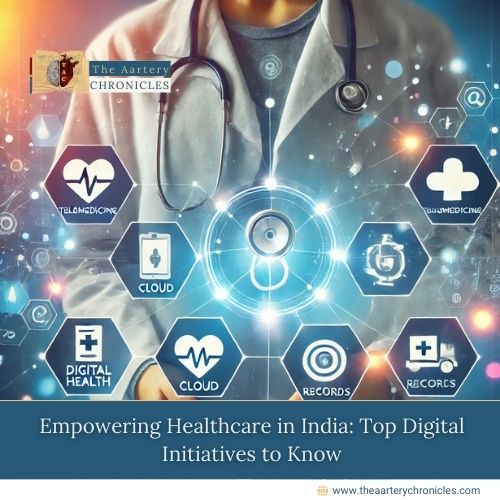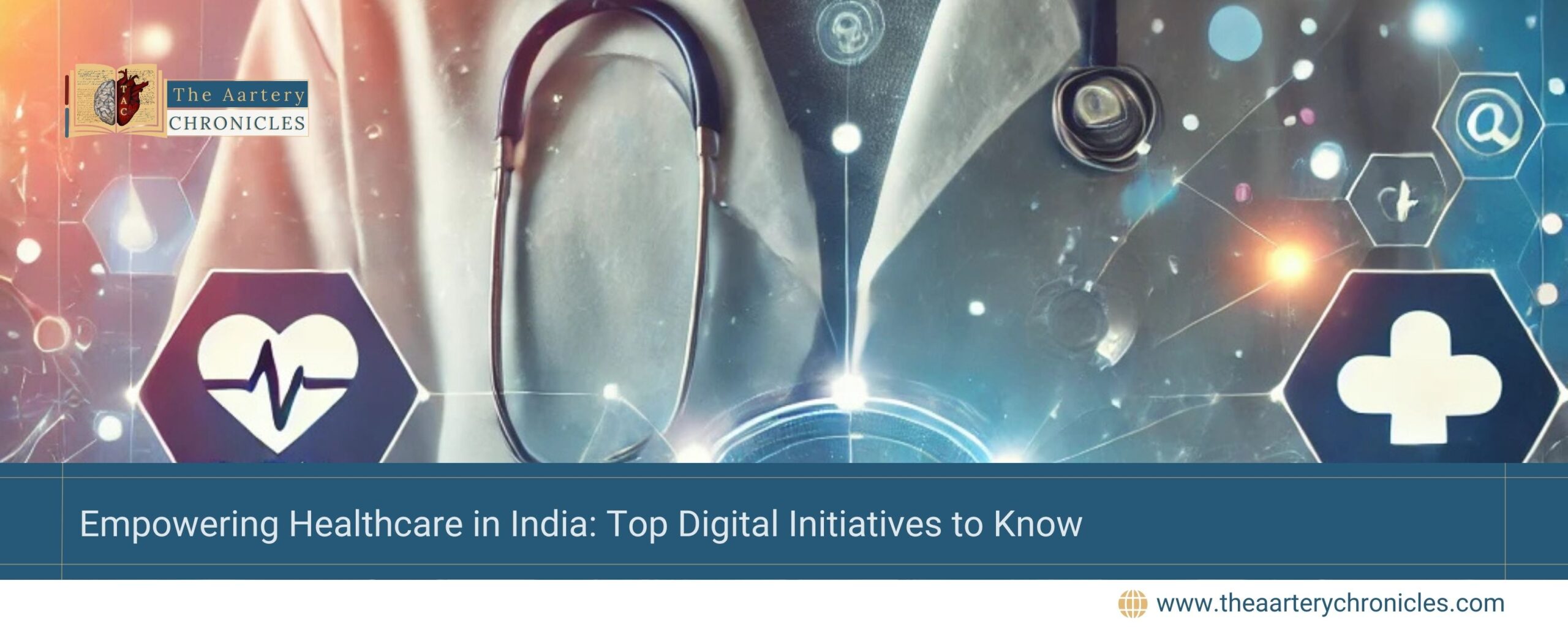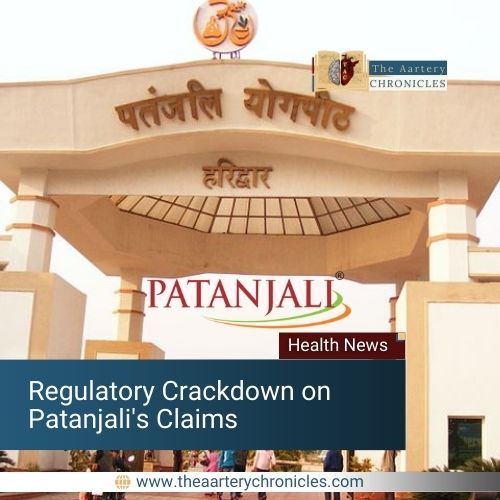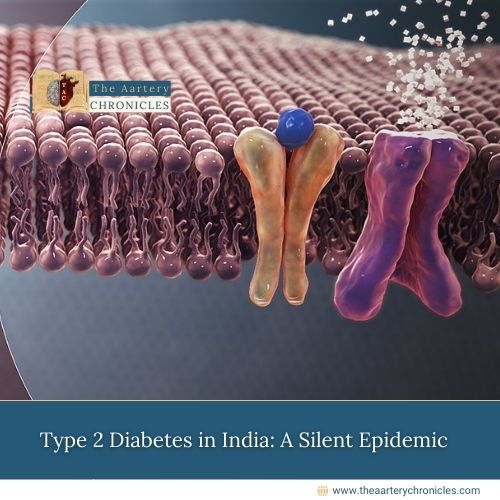

Empowering Healthcare in India: Top Digital Initiatives to Know
Introduction
India’s healthcare system is undergoing a paradigm shift, propelled by adopting digital technologies and government-led initiatives. These innovations aim to bridge healthcare disparities, enhance service delivery, and empower individuals to take charge of their health.
Digital India Initiative: Bridging the Gap
The Digital India initiative has played a pivotal role in narrowing the gap between the government and its citizens. Enabling the transparent and corruption-free delivery of essential services directly to beneficiaries has transformed how citizens interact with the healthcare system.
These efforts aim to harness digital technologies to enhance the quality of life for every citizen, expand India’s digital economy, create new investment and employment opportunities, and build robust digital capabilities within the country.
A Vision for Growth and Inclusion
The Digital India initiative bases its vision on three key pillars:
1. Digital infrastructure as a fundamental service to every citizen
- Providing a secure and unique digital identity to every citizen
- Enabling easy access to essential services like healthcare, education, and financial inclusion through digital platforms.
2. Governance and services on demand
- Transforming governance by making it more transparent, efficient, and responsive.
- Delivering government services in real-time through integrated and interoperable digital systems.
- Promoting paperless and cashless transactions to enhance convenience and reduce corruption.
3. Digital empowerment of citizens
- Equipping citizens with digital literacy to effectively use online services.
- Making digital resources available in regional languages to ensure inclusivity.
- Empowering individuals with access to digital tools and information to participate fully in the digital economy.
Key Digital Innovations Transforming Healthcare in India
1. Aarogya Setu: A National Health App
Aarogya Setu initially launched as a COVID-19 contact tracing app, has evolved into a comprehensive national health app. Powered by the Ayushman Bharat Digital Mission, Aarogya Setu now offers a range of digital health services, such as:
- Digital Health ID Registration: Through Aarogya Setu, users can register for the Ayushman Bharat Health Account (ABHA) and create their Digital Health ID to access and share their health records with participating healthcare providers.
- Online Doctor Consultations: The app facilitates online consultations with doctors using the e-Sanjeevani OPD application, allowing users to book appointments and receive medical advice from the comfort of their homes.
- COVID-19 Vaccination Services: Aarogya Setu helps users schedule, reschedule, or cancel COVID-19 vaccination appointments. Additionally, users can download their vaccination certificates and request changes if necessary.
2. Telemedicine and e-Sanjeevani
The COVID-19 pandemic accelerated the adoption of telemedicine, and the Government of India has played a crucial role in promoting this digital health solution. One of the key initiatives is e-Sanjeevani, an online telemedicine platform that connects patients with healthcare providers for consultations, reducing the burden on hospitals and clinics.
- E-Sanjeevani OPD
This service allows individuals to consult with doctors remotely. Patients can register for consultations online and receive medical advice, prescriptions, and referrals without needing to visit healthcare facilities physically.
- E-Sanjeevani AB-HWC
This version of e-Sanjeevani connects health and wellness centers (HWCs) in rural areas with specialized doctors, ensuring that even remote communities have access to expert medical care.
3. e-Hospital
The e-hospital application is a Hospital Management Information System (HMIS) designed to streamline internal workflows and processes within hospitals. This comprehensive solution connects patients, hospitals, and doctors on a unified digital platform. Available to Central Government, State Government, Autonomous, and Cooperative hospitals via the cloud through the Software as a Service (SaaS) model, e-Hospital is a key initiative under the Digital India program by the Ministry of Electronics and Information Technology. It includes applications like e-BloodBank and the Online Registration System (ORS), with the ORS portal being inaugurated by the Prime Minister of India on July 1, 2015.
Key objectives of the e-hospital project include:
- To offer e-Hospital, e-BloodBank, and ORS applications to government hospitals.
- To provide an online patient portal for services such as appointment booking, access to lab reports, and real-time blood availability status.
- To offer dedicated technical support to hospitals via a call centre or helpdesk.
4. E-Blood Bank
The e-BloodBank application is designed to streamline the management of blood bank operations, making it more efficient and user-friendly. This app enables users to access critical blood bank information and services in real time, promoting transparency and convenience.
Key features of the e-blood bank app include:
- Easy-to-use and customizable interface.
- Simple onboarding process for blood transfusion centres or storage units.
- Real-time tracking of bloodstock availability.
- Ability to request blood with a single tap.
- Access to blood donation history.
- Information on upcoming blood donation camps in nearby districts.
5. Online Registration System (ORS)
ORS connects hospitals across the country through an online appointment system, enabling patients to book consultations. This digital solution replaces the traditional counter-based OPD registration process, streamlining appointment scheduling via the Hospital Management Information System (HMIS). The application is hosted on the cloud services of the National Informatics Centre (NIC). The portal allows patients to schedule appointments with various hospital departments using their ABHA for seamless access to healthcare services.
6. e-Raktkosh
e-RaktKosh is a centralized blood bank management system launched on April 7, 2016, aimed at automating blood banks. It is a web-based platform that includes Aadhaar linkage for added security.
The system comprises six key components to manage the entire blood donation lifecycle:
- Biometric Donor Management System: This system identifies, tracks, and blocks donors based on their health status, donation history, and other factors.
- Blood Testing and Screening: It includes features for blood grouping, TTI (Transfusion Transmitted Infection) screening, antibody screening, and component preparation, following established protocols and rules.
- Centralized Blood Inventory Management System: This component tracks blood stock across multiple blood banks.
- Bio-Medical Waste Management System: Ensures proper disposal of discarded blood and other waste generated during the donation process.
- Donor Registries: It generates lists of rare blood group donors and encourage regular repeat donations.
- Alert and Notification System: Keeps stakeholders informed with timely alerts and notifications related to the blood donation process.
7. Services e-Health Assistance and Teleconsultation (SeHAT)
Services e-Health Assistance and Teleconsultation (SeHAT) is a teleconsultation service launched by the Ministry of Defense for all eligible personnel and their families. This initiative, part of the Government’s Digital India and e-governance efforts, was launched on May 27, 2021.
The SeHAT stay-home OPD allows patients to consult with doctors remotely via the Internet using their smartphones, laptops, desktops, or tablets. The system supports video, audio, and chat consultations, providing a seamless healthcare experience.
Designed to be simple and user-friendly, SeHAT requires minimal effort from users. Teleconsultations are free of charge, and patients can easily access the service by visiting https://sehatopd.gov.in or using the SeHAT app available on the Play Store and App Store.
Conclusion
Digital innovations are revolutionizing India’s healthcare sector, making it more accessible, efficient, and equitable. By embracing emerging technologies and addressing existing challenges, India is poised to create a healthcare system that serves as a global model for leveraging digital solutions to ensure health for all.









